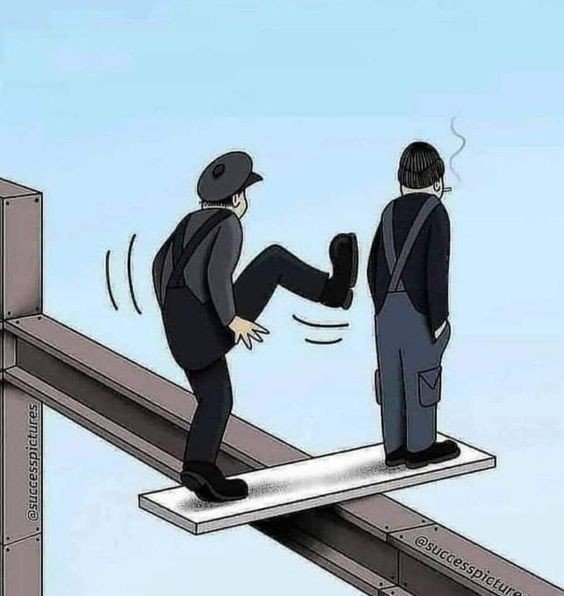WHEN FRIEND BETRAYED ME

In understanding tell us what you understand by the betrayer
Betrayal occurs when someone acts in a disloyal manner with respect to the trust or credibility that we expect from their behavior. This is a despicable attitude, since the traitor, in general, is fully aware of his false conduct and even of the consequences that may arise from it; while the betrayed person, most of the time, tends to ignore the insidious intentions of the person who does behind his back what he never expected to happen.
It is for this reason that the most shocking episodes, both in history and fiction, focus on a betrayal. The dramatic tension that is fostered from the machinations of the treacherous individual to the full knowledge by the betrayed of what is happening becomes a complex emotional burden for the reader or viewer.
Has someone ever betrayed you? Tell us what happened

I have been betrayed a few times, but the one that disconcerted me the most came from someone whom, at that time, I considered a true friend. I had the outline of a project for my degree thesis and the professor who was to advise the research, enthusiastic about the excellent plan I was presenting to him, recommended that I look for a partner, because it was too much work to do it alone. I immediately thought that the ideal candidate was Carlos Saturday, a classmate with whom I exchanged books, notes and discussed the most diverse subjects.
We know that betrayal can lead to heartbreak, tell us a way to heal from that betrayal.
Since I was little, my mother taught me that I should behave well, to practice the best virtues, because as long as I performed as correctly as possible, I would always have a clear conscience, without a sense of guilt or anything that would torment my spiritual peace. It is clear that I have not exactly been a saint throughout my life, but at all times I have tried to faithfully follow the advice of my saintly mother. Therefore, on those occasions when I have been betrayed and I stop to examine the facts carefully, I come to the conclusion that it is not worth suffering for such problems.
If I have not given any compelling reasons for such a mishap to occur, if most of the time I was promoting a relationship without any bad intentions, if the terrible decision of disloyalty came from the other person, it cannot be fair that I should plunge into deep affliction. It is not, of course, about believing ourselves immune to disappointment or pain for what has happened, but about turning the page and moving forward because we have a clear conscience.
How to deal with people who have broken your heart several times?

As we pointed out in the previous answer, if our conduct has always been marked by good will, we must treat people who have betrayed us with the same kindness with which we treat others. We cannot allow the vile behavior of others to induce us to be a reflection of that which we disdain; that is, we are not going to fill ourselves with hatred or show contempt for someone who has hurt us: we will continue being the same, the one who must change his ways of acting, his conduct, is the other person.
Now, if an individual betrays us once, twice, three times, and I don't know how many times, we are also making a serious mistake. Granting so many opportunities to someone who only inflicts harm on us can lead to a degradation of personality. There must come a time when we must radically remove such a pernicious element from our lives.